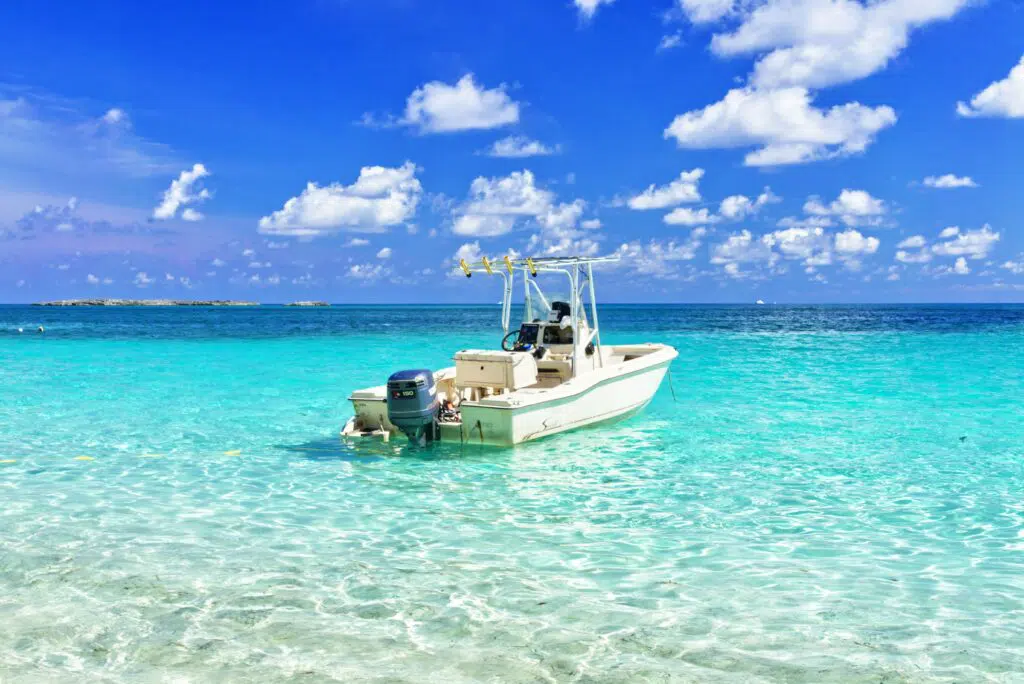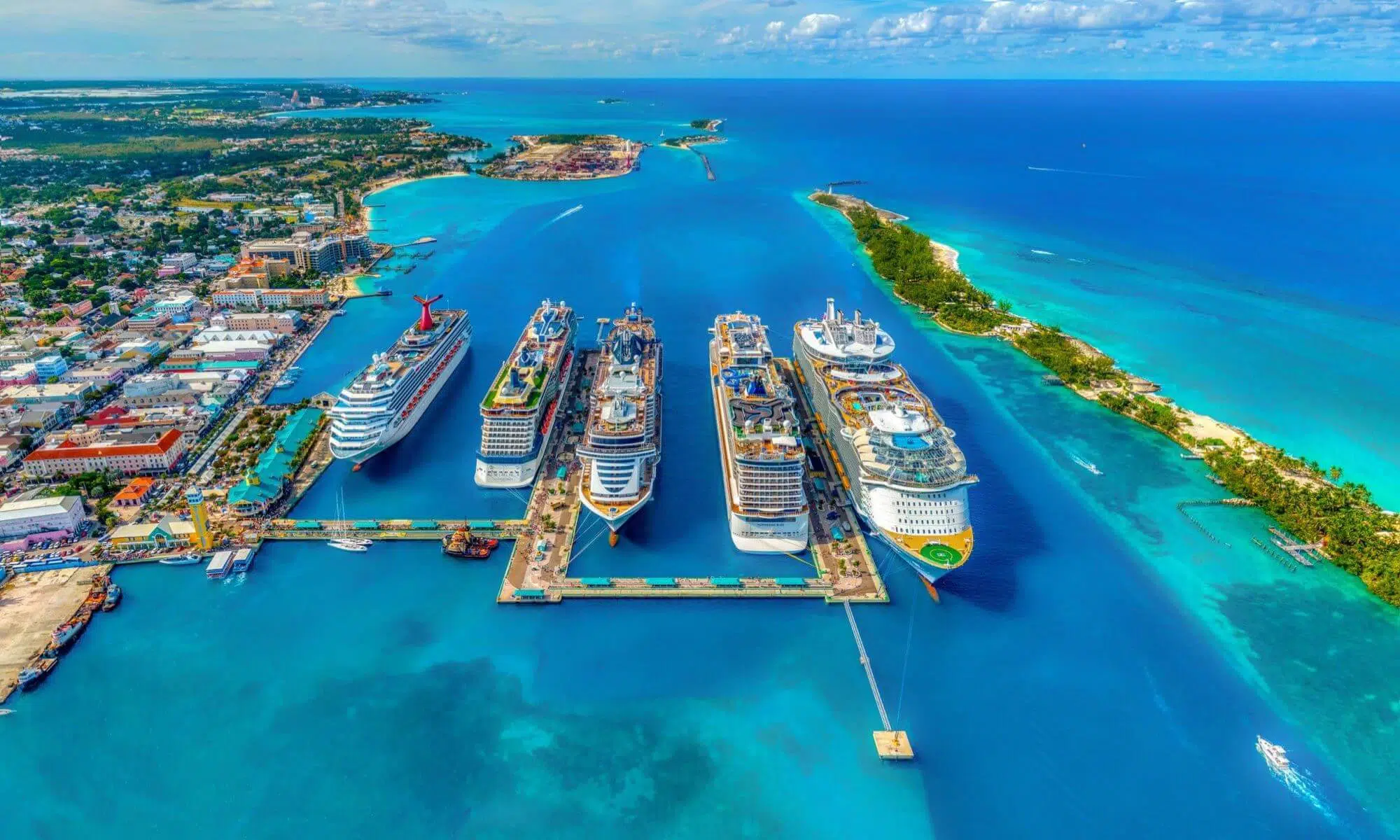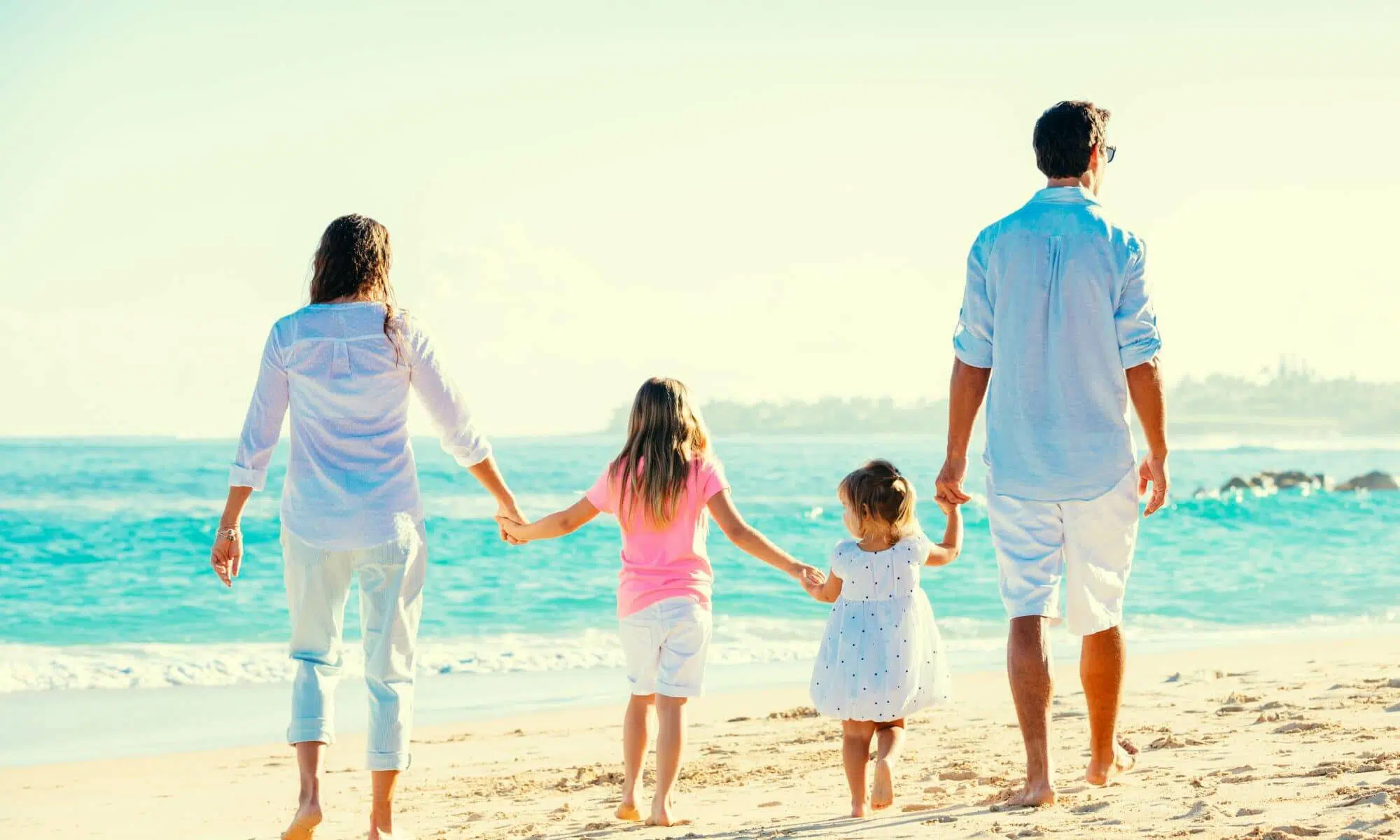There are plenty of ways in which life in The Bahamas can seem appealing. Residents of the island chain enjoy generally favorable weather, scenic ocean views and exceptionally low tax rates.
But there’s more to the decision to relocate to a new country than just good weather and low taxes. You’ll need to consider all the factors that affect your day-to-day life.
Where are the best places to live? Is living in The Bahamas as an American (or citizen of another country) safe? What is the standard of living like?
In this article, I’ll examine what Bahamas expat life is like and the pros and cons you should consider when thinking about moving there.
The Expat Community in The Bahamas
The Bahamas has a thriving community of foreign residents, a fact which can be confirmed by the numerous Bahamas expat forums active online. If you’re looking to meet fellow expats in The Bahamas, you have several options:
- Expat Exchange has a healthy community of Bahamian residents who post regularly on work, real estate, island life and more
- Expat Focus provides articles on transitioning to life in The Bahamas and has a Facebook group that allows members to connect
- InterNations offers details on local expat events, as well as guides and forums where expats can ask questions on living in The Bahamas
It’s important to remember, however, that the total population of The Bahamas is just under 400,000 — so even though the proportion of the community made up of expats is not insignificant, you will not find entire expat neighborhoods as you might in other major cities.
Island life typically unfolds at a much slower pace than in many North American and European countries. Most expat residents view this more relaxed lifestyle as a benefit, but it can take some getting used to.
The bulk of the Bahamian expat community is made up of wealthy Americans who have chosen the country for its weather and tax benefits.

Best Places to Live
The Commonwealth of The Bahamas is made up of some 700 islands, most of which are very small and completely uninhabited.
Of the approximately 390,000 people who call The Bahamas home, around 255,000 live in the capital city of Nassau. Freeport — the second-largest city, located on the island of Grand Bahama — has a population of 50,000.
Determining the best place to live in The Bahamas will depend very much on your priorities for moving here.
- Nassau, on the island of New Providence, offers the only real selection when it comes to shopping in the Bahamas. The same goes for banks and other amenities.
- International schools (generally considered the best in the country) are located in Nassau and Freeport.
- Medical care that matches standards expats are used to are also mostly confined to the two major islands.
- The Out Islands, the less populated, smaller islands, offer a better chance at typical “island life” and boast nearly 2,200 miles of shoreline
City Living
If you don’t want to be far away from the amenities of city living, you’ll likely want to seek out a home in the capital city of Nassau or Freemont. Be prepared, city living on the islands is not the same as urban North America.
Even though Nassau is the capital city of The Bahamas, its relatively small size and population mean that, while shopping and entertainment options exceed those on smaller islands, they do not match those of large cities in other countries.
Island Life
To experience the relaxed pace of life and magnificent views associated with living in The Bahamas, you’ll want to check out one of the outer islands.
Life on some of The Bahamas’ smaller islands includes endless shorelines and beach life, but you’ll have to be prepared to travel to the capital for many day-to-day needs.
Bahamas Cost of Living
It’s unlikely that anyone ever chose to move to The Bahamas to save money. The cost of living in The Bahamas compared to the US or Canada is significantly higher — primarily because nearly all goods must be imported.
As the standard of living in The Bahamas is quite high, real estate in the country also tends to be on the more expensive side of average. Reasonable prices can still be found, depending on the type and location of housing you choose.
Of course, the complete lack of income tax, capital gains tax or estate tax in the country does help offset some of the extra costs when balancing your budget.
This list of average prices should give you a rough estimate of the cost of living in The Bahamas:
- Utilities are significantly more costly in The Bahamas. Expect to pay $250-$300 monthly for electricity, water, heating and cooling in a modest apartment.
- Transit is often slightly less expensive than in the US — a monthly bus pass in Nassau is around $47 — but considerably less reliable.
- Taxis cost more in The Bahamas, with an average cost of $60/hour compared to $27 in the US.
- Eating out will also cost more than in the US, with average prices ranging from $8 for a fast-food combo to upwards of $70 for a mid-priced three-course meal for two.
- Health insurance prices will vary depending on your age, health and the type of coverage you choose, but expect to pay between $50 and $250 per month.
- Groceries are a bit of a mixed bag. Fresh fruit and vegetables are often close to US prices, but other grocery items can be significantly more expensive.

Retiring to The Bahamas
A significant percentage of The Bahamas’ expat population are retirees, drawn to the islands by its generally pleasant weather, relaxed lifestyle and low tax rates.
There are, however, some important factors to consider if you’re thinking of The Bahamas as a retirement destination.
- The cost of living in Nassau (or the rest of The Bahamas) is higher than many other popular retirement destinations, including much of the Caribbean.
- Obtaining Bahamian citizenship is challenging, and the government does not offer an option to gain citizenship by investment.
- Although the medical facilities in Nassau are modern and well-respected, healthcare on the other islands may not meet your needs.
If you do opt to retire in The Bahamas and are planning to purchase a house, you will automatically qualify to apply for a Home Owner’s resident card, which grants you the right to travel freely throughout the country.
Renters will need to apply for annual or permanent residence in the country.
Bahamas Crime and Safety
The Bahamas Ministry of Tourism asserts that crime levels in Nassau are comparable to those of any other major city, but American authorities have issued some warnings for expats.
The US Overseas Security Advisory Council 2019 report on The Bahamas says that, although the Royal Bahamas Police Force reports an overall drop in criminal activity from 2017 to 2018, reports of incidents by US citizens increased by 32%.
The US State Department ranks The Bahamas at Level 2 (of 4) with regards to travel, meaning visitors to The Bahamas should exercise caution.
Most violent crimes in the country take place on the major islands of New Providence and Grand Bahama. Canadian and US authorities warn visitors that sexual assault and armed robbery are becoming more common in these regions.
Driving in The Bahamas can also raise safety concerns for expats. Traffic moves on the left-hand side of the road, but many cars are imported and, therefore, left-hand drive. Roads outside the capital are poorly maintained and subject to flooding after storms.
The Bahamas is also vulnerable to hurricanes, with the peak hurricane season occurring between August and October. Although hurricanes approach The Bahamas, on average, once every two years, they make landfall considerably less often.

Living in The Bahamas: Pros and Cons
There are advantages and disadvantages to living in The Bahamas, just as there are in every other country in the world.
It’s essential to find a location where the benefits of living there outweigh the concerns. In this section, I’ll talk about a few of the high and low points associated with living in The Bahamas.
Pro: Low Taxes
The Bahamas is known the world over as a tax haven. The government does not collect personal income tax, capital gains tax, corporate tax or inheritance tax.
In addition, the value-added tax on goods and services is relatively low and basic necessities (like milk and bread, for example) are exempt from VAT.
Pro: Beautiful Natural Environment
The Bahamas is made up of 700 islands, cays and rocks sprinkled over 100,000 miles of some of the most pristine turquoise waters in the world.
The islands play host to some of the world’s great natural wonders, including coral reefs, underground caves, impressive rock formations and a variety of flora and fauna. Living in The Bahamas gives you unlimited access to:
- Fishing
- Snorkeling
- Beaches
- Swimming
- Diving
Pro: Good Weather
If sunshine is what you’re after, The Bahamas might just be the place for you. On average, the island sees at least 300 days of sunshine each year. Average temperatures range between 70 and 78°F in winter and 80 and 85°F in summer.
While The Bahamas is technically in a high-risk zone for hurricanes, the storms rarely make landfall on the islands and typically pass west or south of the country.

Pro: English is the National Language
English is the official language of The Bahamas, a fact which makes the transition to island life much simpler for expats than in other countries. Public, private and international schools all offer classes primarily in English.
Of course, the way English is spoken varies from country to country — think of the difference between American English and certain British dialects. Bahamian Creole is a common local dialect, particularly in urban areas, but it has its roots in English.
Con: High Cost of Living
As mentioned earlier, the cost of living in The Bahamas is generally quite a bit higher than in Canada or the US. Be prepared to pay more for nearly everything, including groceries, utilities, clothing and entertainment.
The location and type of home you choose will impact the cost of living in the Bahamas. Nassau, for example, has a range of affordable apartments and single-family houses, but luxury homes in the capital can be quite pricey. There are many large beachfront villas in the outer islands, which can range from reasonable to extravagant.
Con: Strict Citizenship Requirements
The Bahamian government welcomes visitors and foreign investors, but obtaining citizenship in the country can prove challenging. To apply for citizenship, you’ll need to be:
- The spouse of a Bahamian citizen
- Born in The Bahamas after 1973
- Born outside of the country to Bahamian parents
- A legal resident of the country for at least ten years, residing there for at least the past six
Authorities in The Bahamas do not recognize dual citizenship. Should you wish to apply for citizenship and all the benefits that entails, you’ll need to renounce the citizenship of your home country first.
Con: The Bahamas is a Small Country
If you’re considering living in The Bahamas, especially if you’re from a larger country like the US or Canada, you should consider what it means to live in a small country.
The population of The Bahamas is less than 400,000 and the government debt is currently equivalent to 64% of the country’s GDP — in part due to officials’ reluctance to raise taxes.
The Bahamian economy relies almost entirely on US tourism dollars and financial activities, which means the country’s fortunes are very closely tied to those of the United States. Because The Bahamas has minimal industry and natural resources, it relies on positive relations with other countries to import most goods.
Con: Travel Off or Between Islands
Island living offers sunshine and ocean views, but it can make travel slightly more challenging — and expensive.
Travel from The Bahamas to any other country involves a plane (or boat) trip. The country does boast an impressive 24 airports, making air travel convenient. But there is no option to go on a road trip to visit friends or family.
If you need to travel between islands — for work, leisure, education or medical reasons — you’ll be reliant on the Bahamas Ferries, which offer transportation between all of the country’s populated islands, or inter-island flights by Bahamas Air or a private airline.
Is The Bahamas a Good Place to Live?
The answer to that question depends very much on your particular perspective, needs and your financial position.
Living in The Bahamas will give you access to some of the most beautiful scenery in the world, the relaxed pace of island life, glorious weather and nearly unmatched tax benefits. It’s also one of the few island nations where you can drink the tap water safely.
But life in The Bahamas also comes with a high price tag. The cost of living is high, travel within and outside of the country is limited, and the country’s resources are not exactly abundant.
Whether or not living in The Bahamas is right for you is a personal choice. I hope that this article has helped provide you with the insights you need to make that decision.
If you have further questions about Bahamian life, or making the move to The Bahamas, please feel free to contact me at any time. I am always happy to answer your questions.


